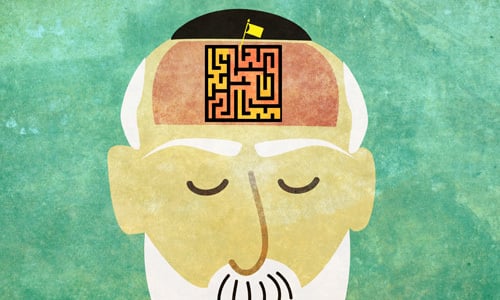
Dear Readers,
You’ve experienced a difficult and overloaded day. The tension is mounting, and your head is pounding. Before your headache becomes utterly unbearable, you swallow two Tylenols. To your great relief, within several minutes the pain has subsided, and you can continue working.
You think you are now functioning as your normal self. But think again.
A new study by researchers at Ohio State University found that while acetaminophen—the main medical ingredient used in Tylenol and many other pain relievers—dulls your own pain, it also dulls your empathy to the trials and tribulations of others.
In this study, participants from two groups were tested; one group was given a placebo pill, and the other was given acetaminophen. After the medicine took effect, the groups were each asked to read sad stories of individuals experiencing challenges and hurt. Each group was then asked to rate the pain of the characters. Those who had taken acetaminophen minimized the pain, while the placebo group had greater empathy for them.
Empathy is our ability to put ourselves in someone else’s shoes and feel their emotional landscape from their own perspective. Apparently, the part of the brain that’s activated when you’re feeling pain is the same part activated when you’re imagining someone else feeling the same pain. And if your pain center is dulled, so, too, is your empathy to another’s agony.
Reading this study made me wonder if the converse is also true. Can experiencing a painful situation actually increase our compassion? While empathy comes more naturally to some than to others, if you have experienced a particular challenge or trauma, can you use your experience to become more sensitized to the depth of another person’s pain?
I have met people who have suffered terrible challenges in their lives: debilitating sicknesses, financial crisis and appalling emotional trauma. Some of these individuals have used their pain and suffering to transform themselves into greater people, overflowing with empathy. The depth of their pain seems to reflect the depth of their ability to feel the hurt of another—and to take action, to proactively do something to help.
While none of us ever wants to experience serious suffering in our lives, perhaps we can view our challenges as opportunities to grow into greater more empathetic individuals.
And while the researchers in Ohio never intended to prove that, perhaps this can have even greater ramifications on how we function as human beings.
Wishing you a week full of empathy—and devoid of headaches!
Chana Weisberg,
Editor, TJW



